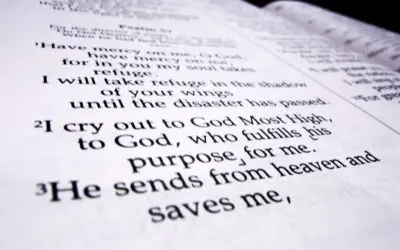We often use the terms reverend, minister, and pastor interchangeably to refer to clergy in our various denominations. However, these terms do not necessarily mean the same thing. Granted, they all refer to religious leaders but they are different in designation depending on the church denomination. In most cases, the Reverend is considered more senior in rank followed by Pastor and then minister in that order. In such congregations, the roles are clearly outlined to avoid any overlap. However, many other denominations use the terms interchangeably.
What is the Difference Between Reverend, Minister, and Pastor?
The difference between these three titles largely depends on the denomination. For the most part, they mean they have similar roles and that explains why the three terms are used interchangeably. For instance, in Southern Baptist churches, every pastor is referred to as reverend or minister.
Reverend
In some denominations (e.g. Southern Baptist), the word reverend is used interchangeably with pastor. However, for the most part, reverend has a separate meaning. The best way to understand what this title means is to examine the roles. Here are some of the common roles of reverends across the different denominations.
Roles of Reverends
- Spiritual Leadership – a reverend serves as a spiritual leader in their jurisdiction. This entails providing guidance, counseling, and general support in issues of morality, faith, and personal struggles.
- Worship Leadership- in most denominations, reverends are tasked with leading religious services. This entails conducting prayers, preaching sermons, and presiding over the administration of sacraments such as baptism or holy communion.
- Pastoral Care – reverends also offer pastoral care to their congregants. This includes care for the homebound, praying for the sick, comfort in times of disaster, as well as addressing any other emotional issues of the church members.
- Education – reverends may also be in charge of leading religious classes designed to provide parishioners with spiritual growth and learning.
Ordination Process
The exact process of becoming a reverend varies across the denominations. However, the general principle is it happens via a formal ordination once the candidate has met the stipulated requirements. These may include a minimum education requirement (e.g. a theological degree), a process of spiritual formation, denominational affiliation, etc. The ordination process is typically done in a public ceremony presided over by the Bishop and other clergy.
Pastor
The term pastor is typically used for someone who watches over the spiritual affairs of a congregation. A pastor’s responsibilities largely depend on the denomination as well as the size of the congregation. However, here are some of the common functions of a pastor.
Pastor Roles
- Spiritual Leadership – as we have already hinted, pastors offer spiritual leadership to their congregation. This may include offering support, counseling, and guidance to the church members. Pastors are responsible for nurturing the spiritual growth and well-being of their members.
- Preaching and Teaching – pastors are required to deliver sermons as well as teach the word of God to the congregants during worship services. They are therefore expected to understand how to interpret scripture to teach it to the church members.
- Shepherding the flock – pastors are also referred to as shepherds because they are expected to take care of “the flock.” This entails taking care of the congregant’s welfare which may include visiting and praying for the sick as well as offering support during hard times.
- Administration – in some cases (especially in smaller congregations), pastors also double as administrators. They help in managing the staff, budgets, as well as church programs.
Ordination Process
A formal ordination is required for one to become a pastor. The details of how one becomes formally ordained will depend on the constitution of the respective denomination. However, some common requirements include theological training and denominational affiliation. A governing body may be used to assess and approve a candidate before they are publicly ordained.
Minister
The word minister is often used to refer to members of the clergy. However, it can also be used to distinguish between the different ranks as per the different denominations. The following are some of the important roles of ministers.
Minister Roles
- Pastoral duties – in some denominations, a minister is synonymous to a pastor which means ministers perform the spiritual duties of a pastor. This includes pastoral care, preaching of sermons, and administrative roles in the church.
- Worship Leader – in some denominations, ministers are recognized as worship leaders. As such, they are in charge of leading a worship service which may include conducting prayers, overseeing the administration of sacraments like communion and baptism, as well as delivering sermons.
- Christian Education – ministers may also be tasked with the role of teaching religious education classes, conducting bible studies as well as giving theological instruction in the church. They may be responsible for teaching religious education classes, leading Bible studies, and providing theological instruction to members of the church.
- Community Engagement: Ministers often engage in outreach and community service, working to address social issues, promote charity, and support those in need.
Ordination Process
The ordination process of a minister is somewhat similar to that of a pastor. The ordination is done in a public ceremony that is typically presided over by the Bishop or other clergy. However, before the ceremony, the candidate must meet some minimum requirements which may include denominational affiliation, relevant theological training, spiritual formation, as well as approval and assessment.
Conclusion
To wrap things up, the difference between Reverend, Minister, and pastor may not be night and day. That’s because the three have similar roles. For instance, a Reverend performs shepherding duties just as a minister or a pastor does. In some denominations, the three mean the same thing. However, some denominations distinguish the three based on rank or education. In such denominations, the Reverend is considered higher followed by the pastor and then minister respectively.





